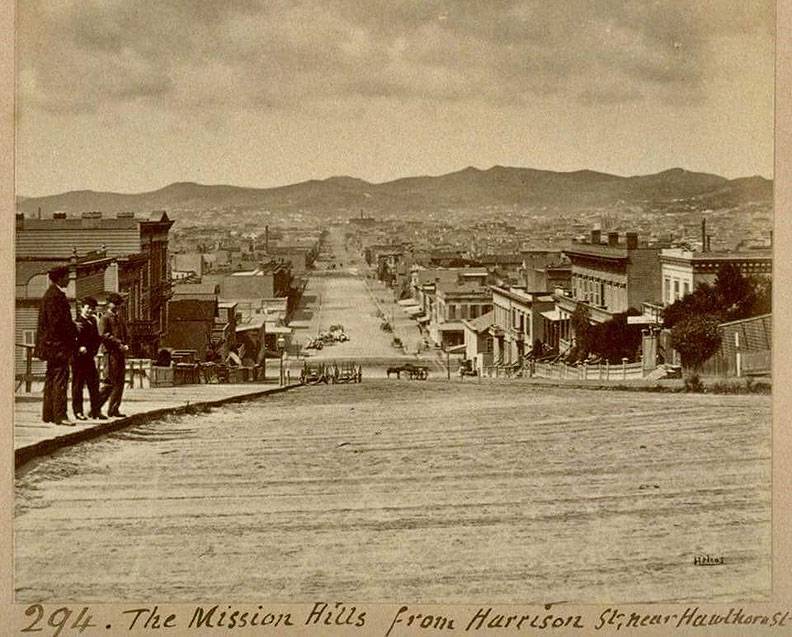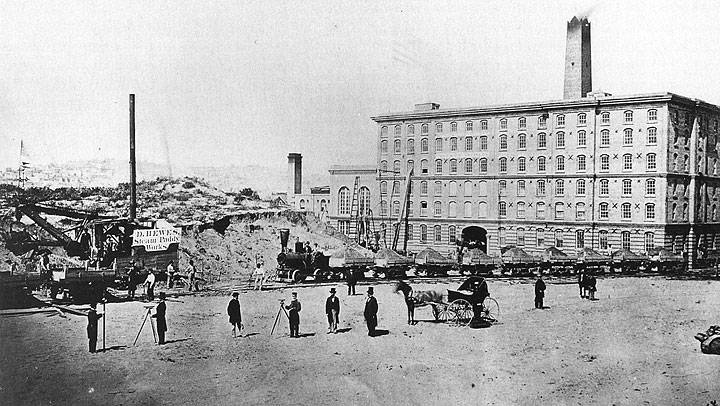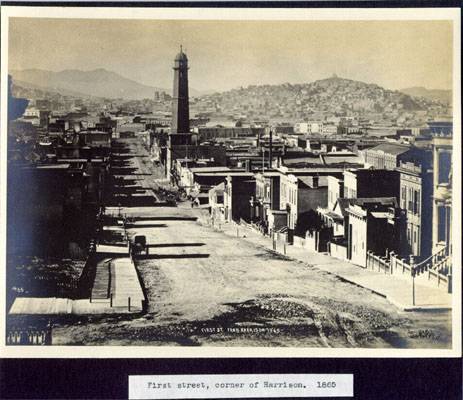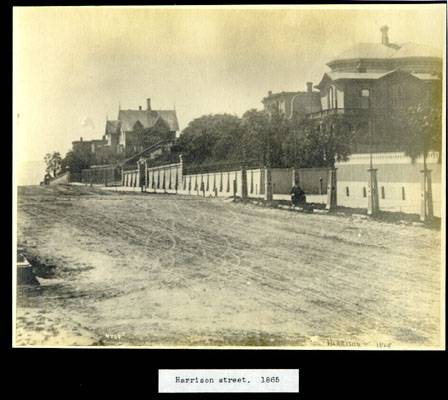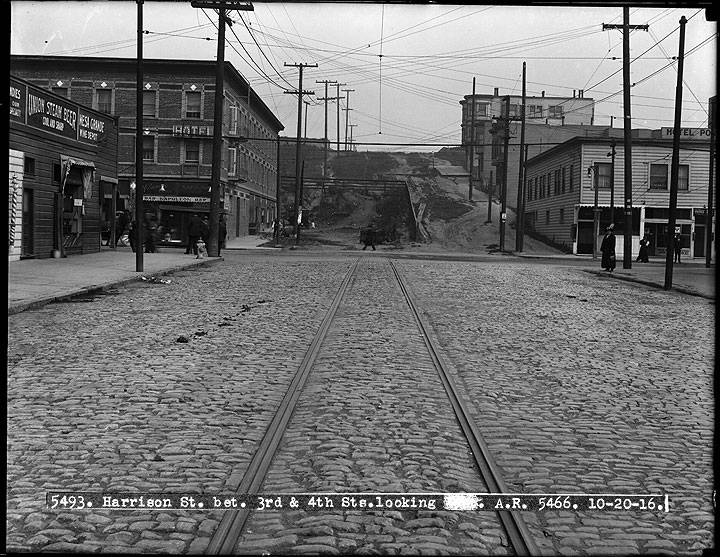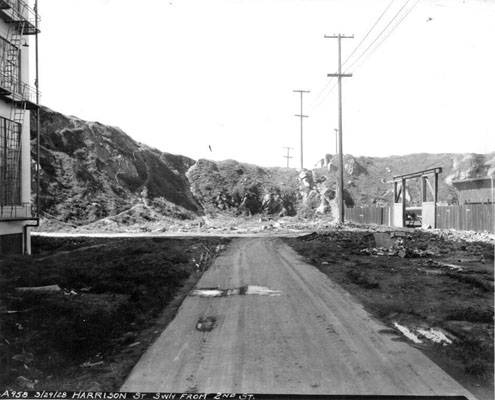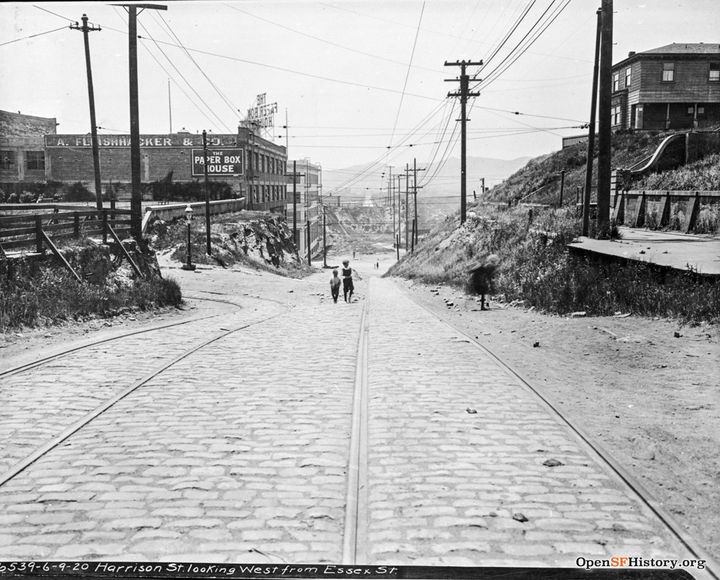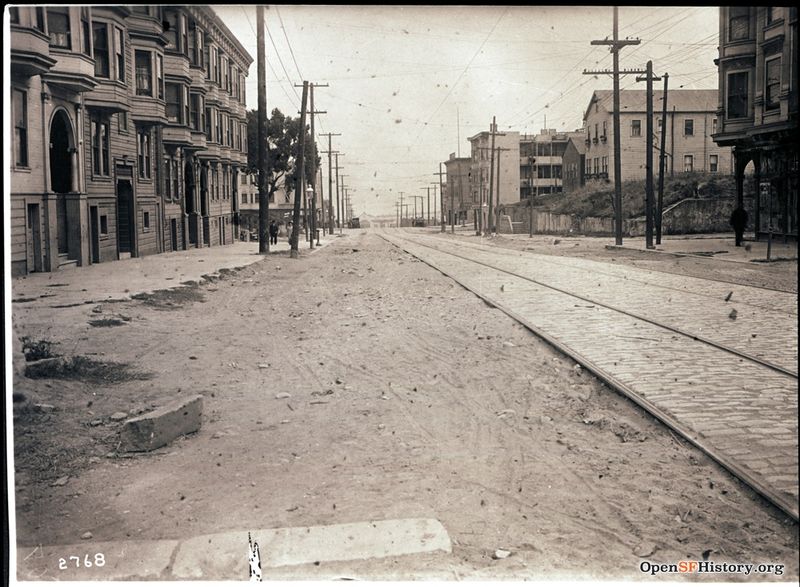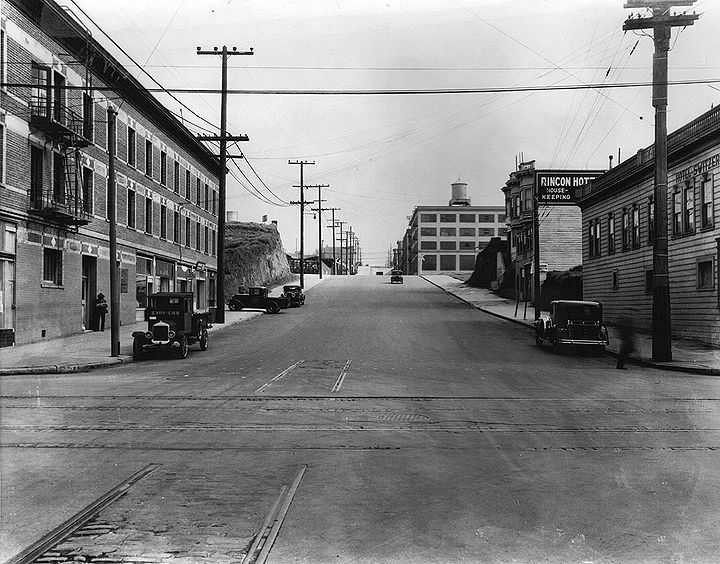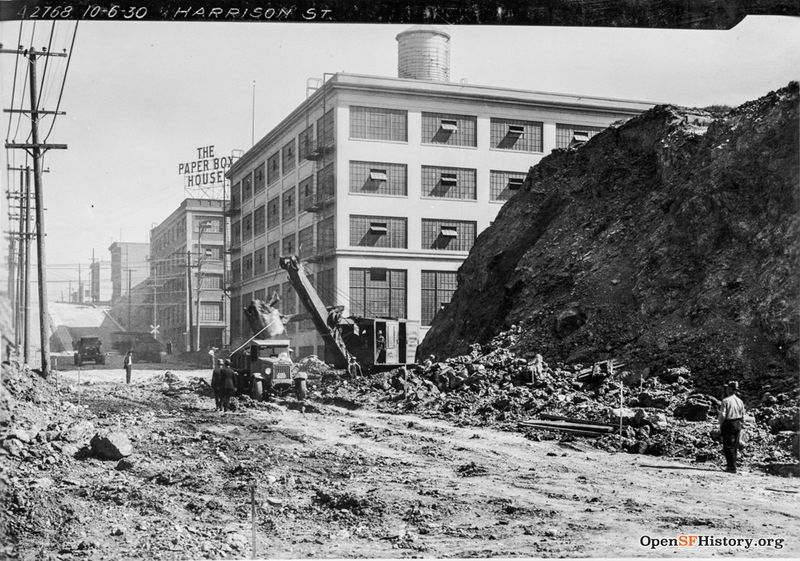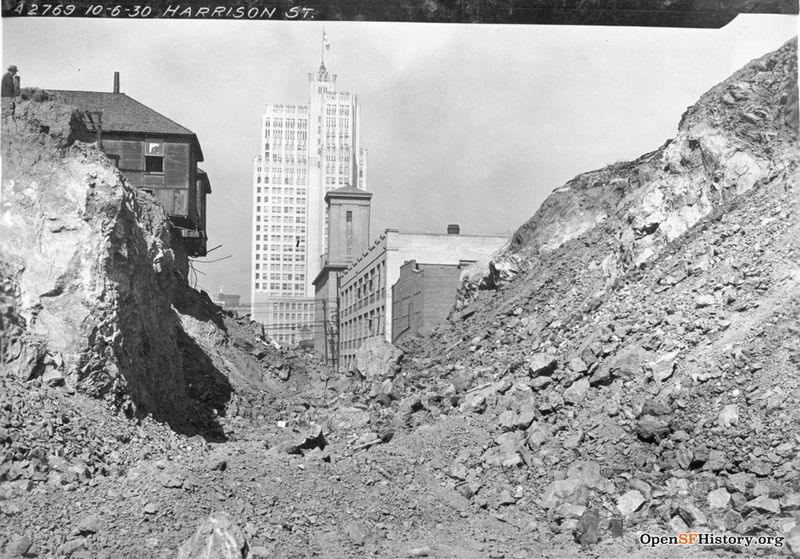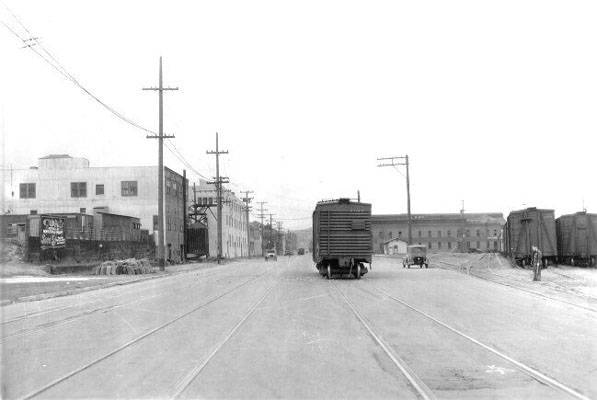Harrison Street from Dunes to Trains: Difference between revisions
No edit summary |
No edit summary |
||
| (11 intermediate revisions by 3 users not shown) | |||
| Line 3: | Line 3: | ||
[[Image:01.gif|64px|left]] [[Image:Bending-over-backwards-icon.jpg|100px|right]] '''Listen to an audio description of 8th and Harrison and its environs, part of the "Bending Over Backwards" walking tour:''' | [[Image:01.gif|64px|left]] [[Image:Bending-over-backwards-icon.jpg|100px|right]] '''Listen to an audio description of 8th and Harrison and its environs, part of the "Bending Over Backwards" walking tour:''' | ||
<iframe src=" | <iframe src="https://archive.org/embed/Stop1SugarworksAndWetlands." width="500" height="30" frameborder="0" webkitallowfullscreen="true" mozallowfullscreen="true" allowfullscreen></iframe> | ||
[http://archive.org/download/Stop1SugarworksAndWetlands./Stop | [http://archive.org/download/Stop1SugarworksAndWetlands./Stop%201-sugarworks%20and%20wetlands..mp3 mp3] | ||
''voice: Patrick Simms'' | ''voice: Patrick Simms'' | ||
| Line 12: | Line 12: | ||
<hr> | <hr> | ||
[[Image:View-west-from-Harrison-near-Hawthorne-c-1870s.jpg]] | |||
'''View west from Harrison near Hawthorne, c. 1870s.''' | |||
''Photo: provenance unknown'' | |||
Harrison Street in the 19th century was an industrial neighborhood from one end to the other. One of the first factories was San Francisco's earliest sugar refinery built by George Gordon (also founder of [[SOUTH PARK|South Park]]). | Harrison Street in the 19th century was an industrial neighborhood from one end to the other. One of the first factories was San Francisco's earliest sugar refinery built by George Gordon (also founder of [[SOUTH PARK|South Park]]). | ||
| Line 19: | Line 25: | ||
'''The "Hewes Steam Paddy Works" at left side of photo shows how the sand dunes that once dominated the South of Market were leveled, filling in the once ubiquitous [[Botanical Reminiscences, 1891|fresh water ponds]]. 'Paddy' refers derogatorily to the Irish laborers who were replaced by the steam shovel. The building is Gordon's Sugar Works at 8th and Harrison.''' | '''The "Hewes Steam Paddy Works" at left side of photo shows how the sand dunes that once dominated the South of Market were leveled, filling in the once ubiquitous [[Botanical Reminiscences, 1891|fresh water ponds]]. 'Paddy' refers derogatorily to the Irish laborers who were replaced by the steam shovel. The building is Gordon's Sugar Works at 8th and Harrison.''' | ||
''Photo: | ''Photo: Private Collection, San Francisco, CA'' | ||
[[Image:First and harrison 1865 AAB-5780.jpg]] | [[Image:First and harrison 1865 AAB-5780.jpg]] | ||
'''Looking north on First from Harrison atop Rincon Hill, 1865. Selby shot tower, where they made artillery shells (cannon balls) is at 1st and | '''Looking north on First from Harrison atop [[Rincon Hill|Rincon Hill]], 1865. Selby shot tower, where they made artillery shells (cannon balls) is at 1st and Howard Street. Old St. Mary's is visible on slopes of Nob Hill in distance, and Mt. Tam is in the distance.''' | ||
''Photo: San Francisco History Center, SF Public Library'' | ''Photo: San Francisco History Center, SF Public Library'' | ||
| Line 32: | Line 38: | ||
''Photo: San Francisco History Center, SF Public Library'' | ''Photo: San Francisco History Center, SF Public Library'' | ||
[[Image:Harrison-Street-Between-3rd-Street-and-4th-Street-Looking-East- October-20-1916 U05493.jpg]] | |||
'''Harrison Street looking east at 3rd, Oct. 20, 1916.''' | |||
''Photo: [http://www.sfmta.com/photo SFMTA Photo Archive U05493]'' | |||
[[Image:Harrison and 2nd 1928 AAB-4032.jpg]] | [[Image:Harrison and 2nd 1928 AAB-4032.jpg]] | ||
| Line 38: | Line 50: | ||
''Photo: San Francisco History Center, SF Public Library'' | ''Photo: San Francisco History Center, SF Public Library'' | ||
[[Image:View West on Harrison from Essex, A. Fleishhacker and Company, The Paper Box House, on left at 2nd & Harrison. Kids walking up the street--wnp36.02325.jpg|720px]] | |||
'''Westerly view on Harrison Street from Essex, c. 1920s.''' | |||
''Photo: courtesy OpenSFHistory.org, wnp36.02325'' | |||
[[Image:View East on Harrison from Essex. Pier 24 is visible in the distance. Oct 18 1915 wnp36.01016.jpg|800px]] | |||
'''Easterly view on Harrison from Essex, Oct. 18, 1915.''' | |||
''Photo: OpenSFHistory.org, wnp36.01016'' | |||
[[Image:Harrison-Street-northeast-at-3rd-towards-Rincon-Hill-March-28-1933-SFDPW 72dpi.jpg|720px]] | |||
'''Harrison Street easterly at 3rd, looking towards Rincon Hill on March 28, 1933.''' | |||
''Photo: SFDPW, courtesy C. R. collection'' | |||
[[Image:Harrison near 2nd Oct 6, 1930--wnp36.03959.jpg|800px]] | |||
'''Harrison Street near 2nd Street looking east, Oct. 6, 1930.''' | |||
''Photo: OpenSFHistory.org wnp36.03959'' | |||
[[Image:View North on Hawthorne from Harrison, Telephone Building at center--wnp36.03960.jpg|800px]] | |||
'''Northerly view on Hawthorne from Harrison, Pacific Telephone & Telegraph building on New Montgomery towers ahead, October 1930.''' | |||
''Photo: OpenSFHistory.org wnp36.03960'' | |||
[[Image:Harrison and 8th 1936 AAB-4042.jpg]] | [[Image:Harrison and 8th 1936 AAB-4042.jpg]] | ||
| Line 47: | Line 89: | ||
[[THE RAILROAD COMES TO SF?|Prev. Document]] [[South Park reference|Next Document]] | [[THE RAILROAD COMES TO SF?|Prev. Document]] [[South Park reference|Next Document]] | ||
[[category:SOMA]] [[category:1860s]] [[category:1850s]] [[category:1920s]] [[category:1930s]] [[category:roads]] | [[category:SOMA]] [[category:1860s]] [[category:1850s]] [[category:1920s]] [[category:1930s]] [[category:roads]] [[category:Hills]] [[category:1870s]] | ||
Latest revision as of 21:08, 29 April 2023
Unfinished History
Listen to an audio description of 8th and Harrison and its environs, part of the "Bending Over Backwards" walking tour:
<iframe src="https://archive.org/embed/Stop1SugarworksAndWetlands." width="500" height="30" frameborder="0" webkitallowfullscreen="true" mozallowfullscreen="true" allowfullscreen></iframe>
voice: Patrick Simms
Next Stop on "Bending Over Backwards" tour
View west from Harrison near Hawthorne, c. 1870s.
Photo: provenance unknown
Harrison Street in the 19th century was an industrial neighborhood from one end to the other. One of the first factories was San Francisco's earliest sugar refinery built by George Gordon (also founder of South Park).
The "Hewes Steam Paddy Works" at left side of photo shows how the sand dunes that once dominated the South of Market were leveled, filling in the once ubiquitous fresh water ponds. 'Paddy' refers derogatorily to the Irish laborers who were replaced by the steam shovel. The building is Gordon's Sugar Works at 8th and Harrison.
Photo: Private Collection, San Francisco, CA
Looking north on First from Harrison atop Rincon Hill, 1865. Selby shot tower, where they made artillery shells (cannon balls) is at 1st and Howard Street. Old St. Mary's is visible on slopes of Nob Hill in distance, and Mt. Tam is in the distance.
Photo: San Francisco History Center, SF Public Library
Harrison Street on Rincon Hill was lined with mansions in 1865. After the Second Street Cut went through a couple of years later, this area quickly sank economically when the wealthy moved to Nob Hill and elsewhere.
Photo: San Francisco History Center, SF Public Library
Harrison Street looking east at 3rd, Oct. 20, 1916.
Photo: SFMTA Photo Archive U05493
As late as 1928, Harrison didn't run through from the lower 2nd Street. This photo is looking west from 2nd on Harrison.
Photo: San Francisco History Center, SF Public Library
Westerly view on Harrison Street from Essex, c. 1920s.
Photo: courtesy OpenSFHistory.org, wnp36.02325
Easterly view on Harrison from Essex, Oct. 18, 1915.
Photo: OpenSFHistory.org, wnp36.01016
Harrison Street easterly at 3rd, looking towards Rincon Hill on March 28, 1933.
Photo: SFDPW, courtesy C. R. collection
Harrison Street near 2nd Street looking east, Oct. 6, 1930.
Photo: OpenSFHistory.org wnp36.03959
Northerly view on Hawthorne from Harrison, Pacific Telephone & Telegraph building on New Montgomery towers ahead, October 1930.
Photo: OpenSFHistory.org wnp36.03960
Harrison at 8th Street in 1946. The old sugar works is long gone, and this area is part of a continuous industrial zone from about 3rd all the way into the Mission District, serviced by freight trains until the 1990s when the tracks were finally removed.
Photo: San Francisco History Center, SF Public Library


